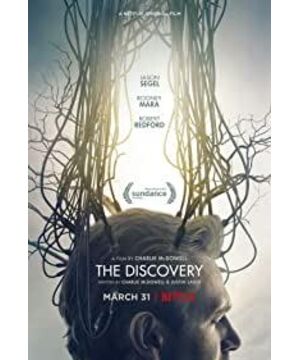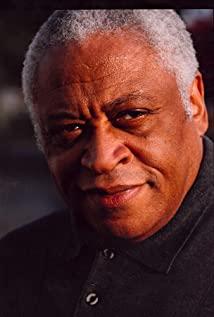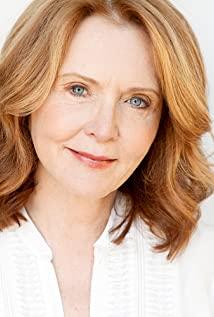The most dangerous setting in the film is that there really is a regret medicine in the world - kill yourself!
The body is just the vehicle of the soul, it is immortal and never ends.
The subject of soul exploration has returned to people's attention in recent years. Undoubtedly, in my tireless pursuit of spiritual reality and the meaning of life, I also like to entertain my body and mind through such films.
The maturity of Netflix in American dramas has made it a new force in movies. I like its production-from the setting of its world view, the novelty of the story, and the freshness of the soundtrack, this time "Discovery" did not let me down.
The story is about a year after the "afterlife" was scientifically proven to exist, and millions of people hope to end their lives in order to reach the afterlife and escape the plight of this life. On the second anniversary of "Discovery", the son of a scientist (Robert Redford) (Jason Segel) rescues a woman (Rooney Mara) who is looking for her own shortcomings and places her in his father's house. "Experimental Asylum". While resisting adversity, he followed the research pace of his scientist father. As the film progresses, I unexpectedly find that I have been in a state of near death, trapped in the cycle of repeatedly meeting the heroine and saving her. After some preaching and "revealing", I am finally liberated and reach the real "afterlife".
The whole film is 102 minutes long. The opening chapter begins with a live TV interview with scientists. The documentary-style question and answer makes the theme clear, and the metaphysical "soul" question becomes friendly and persuasive. With the gunshots of the cameraman, the title of the film "Discovery" was opened, which was neat and suspenseful. Then it tells about the first encounter between the male protagonist and the female protagonist on the cruise ship, and the second meeting and rescue, which happened in the "experimental relief center". The "afterlife" research of an experimental corpse became the fuse for the "big discovery" of the male protagonist. It has to be said that the discovery at about 46 minutes in the middle of the film can almost deceive the audience. This is the first pit - the so-called "afterlife" image is just the memory of the deceased, thus overturning the scientist's theory ; However, the in-depth exploration of the male protagonist and the female protagonist again and again throws the audience a question - if it is not the memory of the deceased, what else can it be? Seeing this, I once thought that it was another "illusion" created by the deceased to comfort his regrets, a perfect ending that he never made a mistake or regretted; That is, near the end, the scientist's father said "what if that is a different level of this life", and then began to lead the reality of "the next life" to the "parallel cosmology"; The male protagonist inspired by his father was anxious to go to a world where the female protagonist was safe and sound, so he experimented himself, and unexpectedly came a shocking reversal - the male protagonist has actually been lying in the laboratory from the beginning of the film, and met him on a cruise ship before. The hostess, he didn't follow him off the boat. The next day they met, the hostess jumped into the sea and committed suicide. This is a fact. The first cruise scene after the title is the "reincarnation" that the male protagonist sees in the lab. Because he regrets the death of the female protagonist, he saves her time and time again, but he can't let go - this is his "near death" The space cycle created in the state is not the real image of the afterlife. When he finally put it down, listened to the voice of the heroine, and really died, after 01:32:00 is the only "afterlife" scene in the film, where there is a parallel universe different from reality, where the boy who was almost killed on the beach was killed by a man After being saved by the Lord, the heroine no longer lost her son, and the hero remembered the heroine. It is conceivable that in the end they were happily together again.
The tone of the film is bluish and cold, and it tries to explain the "afterlife" in an objective manner. However, it does not explore too much about the scene and meaning of the "afterlife", and wraps it in a love story, which has advantages and disadvantages. The "flashbacks" on the clip add suspense to the film, but it's just a little overkill. What is valuable is that the setting of its world view does not take the usual way, describing after death as going to another parallel universe, rather than reincarnation, changing to a different identity and body in a completely different life scene. In a parallel universe, the person is still you, and the relationship between the characters around you remains largely unchanged, but you can start over at the key nodes that affect your life path or thoughts and emotions, and make different choices to make you complete and happy—this The setting can be said to be a new point of view for the same type of movie, but it is also a "dangerous message" that the director finally wants to destroy the machine through the scientist's father to prevent the evidence from leaking out, telling people that there is really a regret medicine in the world, that is suicide, in parallel Choose your appropriate time node in the universe to play again and become happy. This point of view makes the film's values weird, and if the director (who is also the screenwriter of the film) really agrees with this "afterlife" theory, it is obviously pessimistic. If true, it will surely trigger another round of suicide frenzy. I myself agree with the existence of the soul, and reincarnation is also the discovery of many scientific studies (don’t like it if you don’t like it). Recently, I have imagined that the reincarnation of human beings is not necessarily a linear development, that is, after death in this life, it may not be reincarnated to the next linear future, but may be reincarnated back to the historical node of the past, that is, the parallel universe of the past, which will continue to affect the parallelism of the past. Reality - I think this is a point worth looking into and making into another movie (I'm serious, hee hee)
Although the values about the afterlife of the film's soul are not very agreeable, this is indeed the novelty of the film. By the way, I like the right soundtrack to add points for creating a suspenseful atmosphere.
Finally, I recommend a few spiritual movies that I like, and I hope that people who are destined can enjoy them together - "The Holy Land Prophecy", "Kung Fu Panda 1", and "Leap to the Next Life"
Documentaries "Reincarnation", "Spiritual Reality", "Life and Death and Reincarnation"
View more about The Discovery reviews











